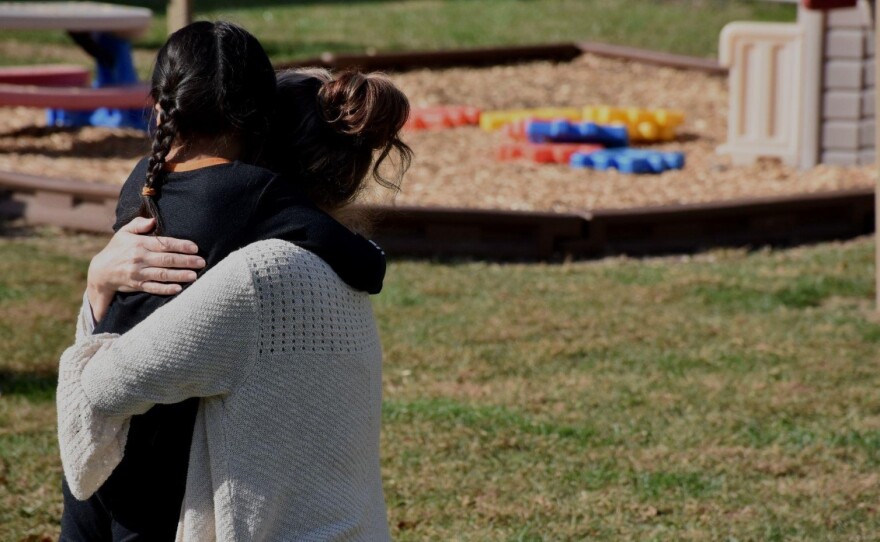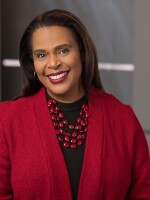The first years of life are vitally important in setting the trajectory for an individual's entire life. Increasingly, research shows that the extent to which children feel safe, loved and connected influences everything that happens afterwards. Are we doing enough to meet the needs of very young children, including before and right after birth? And how concerning is it that childcare is experiencing a staffing crisis with no end in sight?
TRANSCRIPT FROM VIDEO
ANGIE MILES: In the annual KIDS COUNT data survey by the Annie E. Casey Foundation, Virginia's children fared better than the national average in economic wellbeing, but worse on measures of health, including more low birth weight babies in our state, what is it the kids need most to flourish? And how can we best meet their needs
Anthony Gitalado is a father of two young children.
ANTHONY GITALADO: I spend a lot of intimate time with my son and also my daughter to get that positive reinforcement that I so desire to get. I think the easiest way some of that up is to end that vicious toxic cycle.
ANGIE MILES: His determination to nurture them well is prompted in part by his own childhood, which he describes as full of traumatic experiences as an unwanted stepchild until his mother eventually abandoned him.
ANTHONY GITALADO: They say childhood is supposed to be your fondest memory. However, I grew up in a very turbulent family, where my mom was always trying to push me off to her friends, which also led to foster care.
ANGIE MILES: Because of his upbringing. The college graduate and IT professional says he's had to look elsewhere for role models. One person he admires is this man (photo of Wes Moore) who like Gitalado comes from a family of recent immigrants. When Wes Moore became the first Black man in Maryland, and only the third in the country to win a governorship, it wasn't the first time he drawn national attention. Moore wrote the 2010 best seller “The Other Wes Moore” this dual biography featured two boys; same race, same name, similar humble beginnings. The book illustrates what a difference the right opportunities and support can make in how children grow up.
CHILD 1: When I grow up I want to be a firefighter.
CHILD 2: Me when I grow up, I want to be a teacher.
CHILD 3: a princess.
CHILD 4: My mom.
ANGIE MILES: You want to be your mom?
CHILD 4: Yeah.
ANGIE MILES: Ask young children their hopes for the future. And their answers might surprise you.
CHILD 5: I want to be a doctor.
CHILD 6: I want to be a Sheriff cop.
ANGIE MILES: No child hopes for endless disappointments, failure or prison. So why then does this become the reality for so many people?
KIMBERLY AYERS (Director, Wythe County Department of Social Services): Not having a sense of safety. Not having a sense of where's my next meal going to come from? Where am I going to sleep? Who is going to take care of me? Are mom and dad going to be fighting tonight? Am I going to be scared? I mean, those are all things that are very real matters that occur with children. And that does affect our brain development and how we see the rest of our world.
ANGIE MILES: Kimberly Ayers is describing the kinds of experiences that can traumatize young children and put them on a course for lifelong struggle. The more significant the trauma, the greater the risk for future failure. The groundbreaking book “Ghosts from the Nursery” suggests a straight line from poor prenatal care and disjointed or abusive relationships in infancy to maladjusted behavior by preschool. The research shows the prevalence of disease, violence and crime in today's society is tied directly to inadequate support of parents and very young children.
KIMBERLY AYERS: Unfortunately, a lot of what we see in social services is generational, and it's incumbent upon us to provide services and support to families that are at high risk. The child was born substance exposed or the child was born to a parent that was incarcerated where the child entered foster care upon birth or, or soon thereafter. So brain growth and development in those first two years of life as children are learning how to interact with the world, that is the basis for all of the other academics and all of the other connections and relationships they form later in life.
ANGIE MILES: Rebecca Morgan of Middlesex County is president of the Virginia League of Social Services executives. Her county offers HeadStart for children three to five and early HeadStart for infants and toddlers.
REBECCA MORGAN: (Director of Social Services, Middlesex County), Making an investment now and their future is only going to strengthen our whole society and it's going to benefit all of us.
ANGIE MILES: HeadStart is a federal program begun in 1965 to promote school readiness. Elisa Riis is HeadStart Director for Frederick, Clark and Winchester. Like all HeadStart programs. This preschool experience is income-based, intended for the poorest among us. Her program serves children and supports their parents as well, many of whom are immigrants.
ELISA RIIS (Program Director, CDI HeadStart) So, a parent might need help driving, getting a license, so, we'll help through that process. Or they might be wanting to buy a house and so we can help them start with getting a bank account and then building some credit and moving towards their goal, whatever it may be.
ANGIE MILES: Riis has special concerns about children born during and just before the pandemic, because so many were deprived of social interaction in preschool. And because mask wearing made it hard for children to see facial movements, crucial for emotional connection and for learning language.
ELISA RIIS: Phones and technology have also been a big impact. There's two year olds that are better on their phone than I am. And it's become a babysitter, they lose out on that personal conversing, socialization falls into it. There's just so much that's lost. And I think from the pandemic, it's really even worse.
ANGIE MILES: Riis and her team strive to ask open-ended questions, to build critical thinking skills to discipline in a productive and respectful way, and mostly, to constantly assure the children that they are safe and they are loved. These early school interactions are the focus of Bweikia Steen's research and teaching at George Mason University.
BWEIKIA STEEN (Associate Professor, Early Childhood Education, George Mason University): You got it, you got it. Emotion drives, what?
STUDENTS: Attention
BWEIKIA STEEN: Attention drives what?
STUDENTS: Learning.
BWEIKIA STEEN (in classroom): So, what is the child's interests? What are their strengths? How do we develop a rapport with each child?
BWEIKIA STEEN: What happens in the home matters and what happens in utero matters, but I also think that it can be countered with what happens in the school, whether that's as an infant, a toddler or pre-K, the school plays a major role in the development and learning of that child. Intentional teachers, teachers who won't give up will determine their strategies to develop relationships with students. Early childhood is the time to meet the needs of the students. Birth to three years old, that's the window of opportunity for learning and development. Early childhood educators are the most important educators They lay the foundation for whether a child decides that school is for them. For me, my research, so that is determined by first grade.
ANGIE MILES: Another groundbreaking book “The Untouched Key” runs parallel to Steen's findings, the negative effects of trauma can be countered to some degree by the intervention of caring adults. That was the case for Anthony Gitalado. He says years of neglect shaped him into a troubled youth. He spent almost a decade in foster care after being left at a crisis center.
ANTHONY GITALADO: Freshman year of high school. I was arguing with my mom, she told me to get in the car and took me to Westhaven Crisis Center in Virginia Beach and dropped me off. And that was the last time I saw her aside from court.
ANGIE MILES: Gitalado offers praise for the social workers who intervened to help him. There was one in particular who made sure he finished college. He later lobbied his local legislator to recognize her dedication with a formal resolution. Gitalado didn't find his guardian angel until he was a teen. Experts agree that while it may never be too late to make the difference a young person needs, the sooner the intervention, the better.
Bweikia Steen's colleague at GMU, Colleen Vesely says America continues to undervalue young children and those who care for them.
COLLEEN VESELY: Those folks who are working with infants and toddlers, they have to be our best and brightest. We have to decide as a society, “are children important?” Then we put policies in place that that truly support those early years. And those are things that are directly supportive of children, but also those adult caregivers around them, whether that be their parents, their grandparents, their neighbors, their teachers, their coaches, all of those people that contribute to their development.
ANGIE MILES: Since 2020, childcare has lost more than 100,000 workers continuing a trend of attrition prompted by long hours and low pay.
COLLEEN VESELY: The not trusting that they actually have degrees and expertise and know how to guide young children. And so there just seems to be this pervasive kind of lack of respect for those earliest years as being really important.








